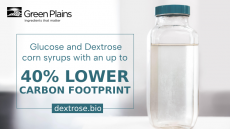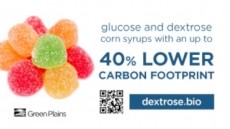Sustainability
Ferrero shares list of 2018 palm oil suppliers in transparency commitment

Ferrero now looks to collaboration with ‘key internal and external stakeholders’ to regularly and systematically review its 2014 Palm Oil Charter. Updated versions will ‘better reflect future challenges and the value proposition of Ferrero,’ according to the report.
The company has also committed to follow the High Carbon Stock approach (HCS) – which RSPO adopted last year – as well as guidelines laid out in the Free and Fair Labor in Palm Oil Production report from Humanity United, starting with adherence to International Labor Organization standards.
“Transparency is crucial to improving our supply chains,” a company spokesperson told ConfectioneryNews. “We regularly release reports on our progress that disclose data on suppying mills, describe our approach, and outline next steps.”
That Ferrero has gone from announcing its commitment in 2014 to publishing a full list of sourcing mills illustrates its ability to ‘talk the talk and walk the walk,’ the confectioner said.
First published at the end of June, the list includes the names and parent companies of 76 mills, plus the precise mill name and location – down to the geographical coordinates. A majority are located in Indonesia or Malaysia, but Ferrero also works with a few mills in Papua New Guinea and two in Costa Rica.
Moving forward, the confectioner expects to publish these lists bi-annually. So far, it has shared two: one from the second half of 2017 and the other from the first half of 2018.
What is RSPO?
The Roundtable on Sustainable Palm Oil (RSPO) started in 2005, officially open for producers and manufacturers to follow in 2007.
A taskforce reviewed the program after five years, leading to executive board and general assembly approval in 2013.
“There is an ever-urgent need and growing global concern that commodities are produced without causing harm to the environment or society,” RSPO says on its website, adding that certification offers consumers assurance of certain standards of sustainability.
By 2014, about 20% of global palm oil production originated on RSPO-certified farms – just over half of which are in Indonesia and 40% in Malaysia.
Today, the organization boasts more than 4k members across the supply chain, including banks/investors, NGOs and retailers.
Joint effort a must
In the first transparency report of mills in 2018, COO Aldo Uva said, “We believe that a holistic approach with on-the-ground actions are necessary to create longterm positive impact on the palm oil sector and we are committed to it.”
The company is working with more than just RSPO: it also has latched onto the Palm Oil Innovation Group (POIG), which has its own checklist for biodiversity, carbon footprint, local labor rights and community viability.
In 2018, Ferrero thus enlisted a third-party verifier called Bureau Veritas to double-check suppliers’ compliance with POIG. After a successful first go, it will apply this verification process to ‘several’ supplying mills and hopes to expand it to cover a majority of its entire supply chain by 2020.
Along with RSPO and HCS, Ferrero said it will ‘actively support’ new guidelines while also engaging with suppliers in efforts to improve food security in their local communities.
Keeping the pledge
Ferrero told us it has been “dedicated to sourcing sustainable palm oil…from the very beginning.”
A year after announcing its plan, Ferrero completed phase one, which ensured that its products were produced with RSPO-certified ‘as segregated’ palm oil. That way, all sustainably sourced oil remained separate from non-sustainable versions, the company spokesperson told us, a process that RSPO periodically audits throughout the supply chain.
The second phase called for full traceability, which Ferrero said is now a reality: “We’re now able to trace 100% of the hundreds of thousands of tons of palm oil we source to 116 mills, and 99.9% to 491 plantations covering 50k smallholder farmers.”
Moving forward, the confectioner hopes to develop early warning systems and a ‘Grievance Mechanism’ to pinpoint and resolve issues before they become unwieldy.



















